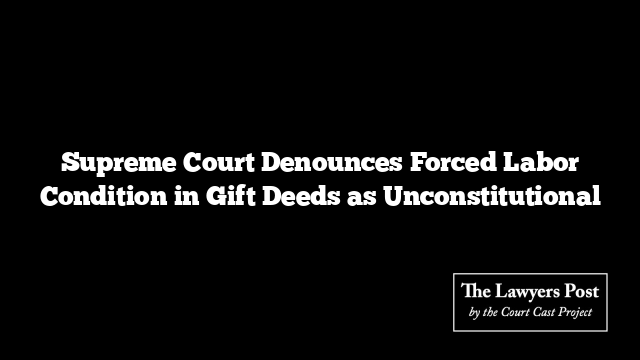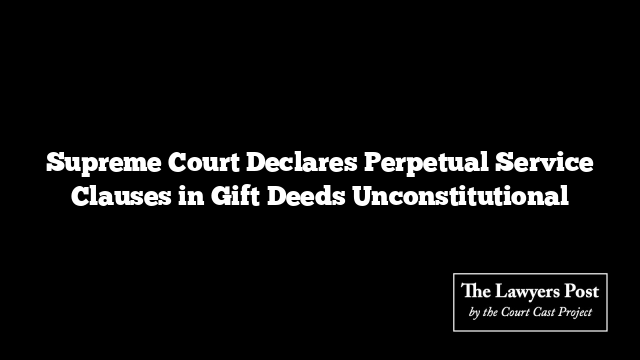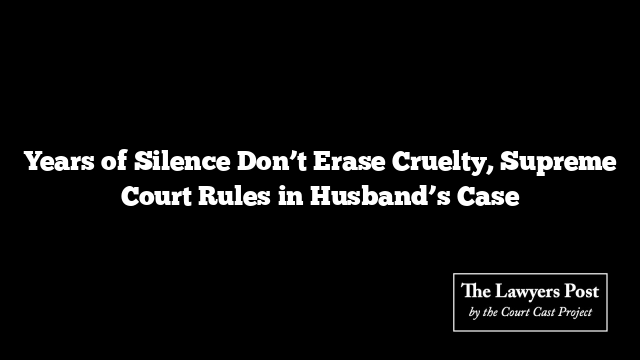In a landmark ruling, the Supreme Court has declared that conditions within gift deeds requiring perpetual, unpaid services amount to forced labor, a practice explicitly prohibited by the Constitution of India. The Court held that such conditions, often seen in historical contexts, are not only unjust but violate fundamental rights.
The judgment arose from a decades-old dispute over an oral gift deed executed in 1953. This deed required the recipients and their successors to provide unpaid services to the donors. The issue escalated when the original donor’s successors sought to reclaim the land in 1998, citing the recipients’ failure to continue these services.
Delving into the historical backdrop, the Court noted that such conditions were often imposed by landlords in the mid-20th century to evade land reform laws, which targeted large landholdings and sought to redistribute wealth. The bench observed that while such practices might have served as legal loopholes at the time, they fundamentally clashed with the constitutional principles of justice, equity, and human dignity.
Highlighting the issue, the Court questioned the validity of perpetuating unpaid labor across generations, likening it to “begar”—a form of forced labor outlawed under Article 23 of the Constitution. The judgment noted:
“A condition requiring perpetual services without remuneration is not only wrong or illegal but unconstitutional, as it violates fundamental rights. Such a requirement cannot form a legitimate part of a gift deed.”
Despite its strong stance on forced labor, the Court clarified that the condition did not render the gift itself void. Instead, it reinterpreted the clause to apply only to services rendered in the past or at most, to the original donor. The judges emphasized that no obligation for indefinite services could be legally upheld.
The ruling reaffirms the Court’s commitment to upholding constitutional values while offering a nuanced perspective on historical agreements shaped by socio-economic contexts. The appeal, challenging the ongoing possession of the land by the donees, was ultimately dismissed.





